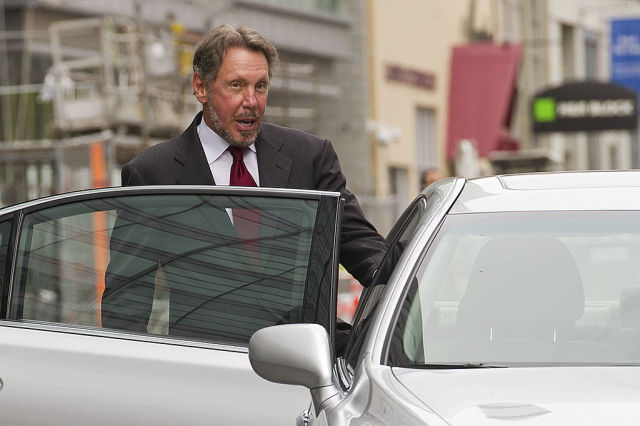
SAN FRANCISCO—Presentation of evidence in the Oracle v. Google trial ended today, and US District Judge William Alsup has sent the jury home for a long weekend. On Monday, the jury members will come back to hear closing arguments and begin their deliberations.
The lawsuit began when Oracle sued Google in 2010 over its use of 37 Java APIs, which Oracle acquired when it bought Sun Microsystems. In 2012, a judge ruled that APIs can't be copyrighted at all, but an appeals court disagreed. Now, unless a jury finds that Google's use of APIs was "fair use," Oracle could ask for as much as $9 billion in damages.
The final hours of court time today were filled with a short Google rebuttal case, in which the company called two witnesses.
First, Google put up its own economist, Dr. Greg Leonard, who testified that Android didn't have any market impact on the Java licensing market for smartphones. Android, a smartphone operating system, simply wasn't a replacement product for the feature phones whose companies often paid to license Java from Sun.
Leonard also testified that the 37 APIs at issue in the case weren't "central to Android's success." In fact, Google could have chosen to not use Java at all.
"Java’s not the only programming language out there," said Leonard. "Google could well have chosen to use C++ and produced a version of Android that would have been as successful as what actually happened."
Finally, Google called its technical expert, Duke University Prof. Doug Astrachan, back to the stand to clarify some of the points made earlier about APIs and the role they play in computing.
Alsup then dismissed the jury, reminding them again not to talk to anyone, including loved ones at home, about the case. The parties negotiated over the exact language of jury instructions, which will also be presented on Monday. Each side will have a 90-minute time limit for their closing argument.
When the jury deliberates, it will only decide whether Google is liable for copyright infringement or whether the company's use of APIs is protected by "fair use."
The jury will make a decision on damages only if it finds Google liable. There will then be a separate damages phase in the form of another, shorter trial.
It still isn't clear just how much Oracle will be allowed to ask for, but it's a potentially massive number. In an expert report filed earlier, Oracle declared its intention to ask for as much as $9.3 billion, of which $8.8 billion is disgorgement of Android profits.
Alsup has since ruled (PDF) that those numbers need to be tweaked, and he called a subsequent figure of $8.0 billion in Android profits "less speculative." It remains unclear at this point exactly what kind of figure Oracle will be allowed to present to the jury, but if the company gets what it's asking for, the verdict will be staggering.
More from the Oracle v. Google trial:
- Read the Ars Technica explainer on the trial's significance
- Jury selection took place on Monday, May 9
- Lawyers gave opening statements for Oracle and Google on May 10
- Ex-Google CEO Eric Schmidt testified on May 10 and 11
- Ex-Sun CEO Jonathan Schwartz told jurors he had no problem with Android on May 11
- Android chief Andy Rubin testified on Thursday May 12
- Top Android programmer Dan Bornstein testified on May 13 and May 16
- Google expert Owen Astrachan discussed APIs and fair use on May 16
- Oracle CEO Safra Catz testified on May 16 and May 17
- Sun's top Java architects and Oracle's expert spoke to the jury on May 17
- Sun's Java licensing execs, an Apache programmer, and an economist testified May 18
- Alphabet CEO Larry Page testified earlier today
reader comments
210